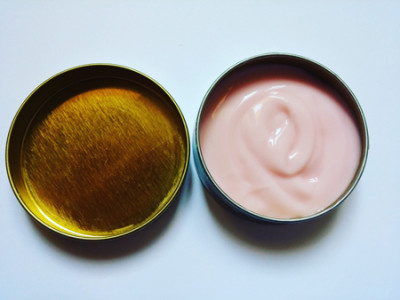How to combat dry winter skin
BY NICOLE CALHAU
Lukewarm showers in the dead of winter aren’t very appealing but skin care experts say the secret to healthy skin is to control your water temperature.
“Turn down the temperature on the showers,” said Janine Falcon, beauty blogging expert at imabeautygeek.com. “You can take warm showers but not hot showers because you’re basically taking off grease and oil like when you’re washing hot dishes, and that’s essentially what you’re doing to your skin if you’re taking a hot shower.”
Every winter in Canada people experience the effects of dealing with the cold, and some may think getting into a bathtub or shower full of hot water will help make the feeling of the brisk winter air against your skin go away.
“The thing about the cold is that you’re exposed to temperature changes and drier air and the thing about moisture is that it will go where it’s drier,” said Falcon. “So the moisture in your skin is evaporating and it’s not absorbing any moisture from the atmosphere.”
Not only does the heat take away our skin’s moisture, but the dry winter air robs our skin cells of the natural oils they need to stay healthy.
“You have about a three-minute window right after you get out of the shower while you’re skin still has a little bit of extra moisture in it and on it,” said Falcon. “You want to lock that on to your skin.”
Changes in temperature, along with harsh products, can cause red patches or severe itching from stripping away moisture.
“Make sure you’re using a gentle soap, or a gentle cleanser so it doesn’t strip the moisture,” said Dr. Kucy Pon, a dermatologist at SunnyBrook Health Sciences Centre in Toronto.
Not only does water temperature play a role in damaging our skin but having the furnace cranked up also dries up the air in our homes.
“Put a humidifier in your home or in your office. That adds a little bit of humidity back into the air so the air is not so dry and therefore your skin tends to be not as dry,” said Pon.
There are many ways to get the moisture back into our skin after being exposed to dry environments.
MORE RELATED TO THIS:
- Killing them softly with your face
- Just a spoonful of sugar: How many do you down in a day?
- Finding calm in a pink salt cave
“Coconut oil is a fantastic moisturizer because it melts at body temperature, and at room temperature it becomes liquid so it’s very high fat,” said Falcon. “So you put that on your skin and it just sucks it up.”
Drinking a lot of water can always help hydrate your skin, and using an extra lotion that contains light oils gives back the vitality of your skin you lose during the winter.
“The most important way to protect your skin from dryness is to hydrate it with lots and lots of water,” said Sim Arora, Sheridan College student enrolled in Child and Youth Care.” I make sure to not touch my face a lot to avoid pimples on my oily areas, and drink lots of water to keep my skin hydrated for the dry areas.”
Carrying around thermal water sprays is also useful when the heat is cranked up in the house. It helps your skin soak up nourishments before reapplying lotion. The water in these sprays comes from underground springs and contains trace elements of vitamins that are good for the skin.
“I keep them around my house when my skin is super dry and is starting to feel itchy,” said Falcon, “I will mist my skin and give it a little rub so that the water is not just sitting on top of the skin and then I will put a lotion on.”
Pay attention to products that have natural oils, like avocado, coconut, almond or grape seed oil. These lighter oils make it easier for the skin to soak up and retain moisture to stay soft.
Stay clear of products that have fragrance, like lemon or floral, because it makes your skin dryer and cause extra skin problems.
“Try to avoid a lot of heavily scented fragrance products, because that can irritate your skin, especially if you have very sensitive skin,” said Pon.
Other products that help the skin include,
- aloe vera, high in antioxidants
- tamanu, promotes the growth of new skin cells
- niacinamide, which is also vitamin B3, to decrease breakouts, and improve skin tone
Titanium dioxide, found in SPF products, helps block UVA and UVB rays without the skin soaking it up.
Products that contain hyaluronic acid can help pull hydration from the environment around you so your skin can hold onto it.
Finding the right product for your skin type can be difficult, so don’t be afraid to try products that might not work on a friend.
“It really depends on your own skin type,” said Chelsea Kumar, visual merchandising student at Sheridan College. “Your skin is an organ, the biggest organ in the human body.”





